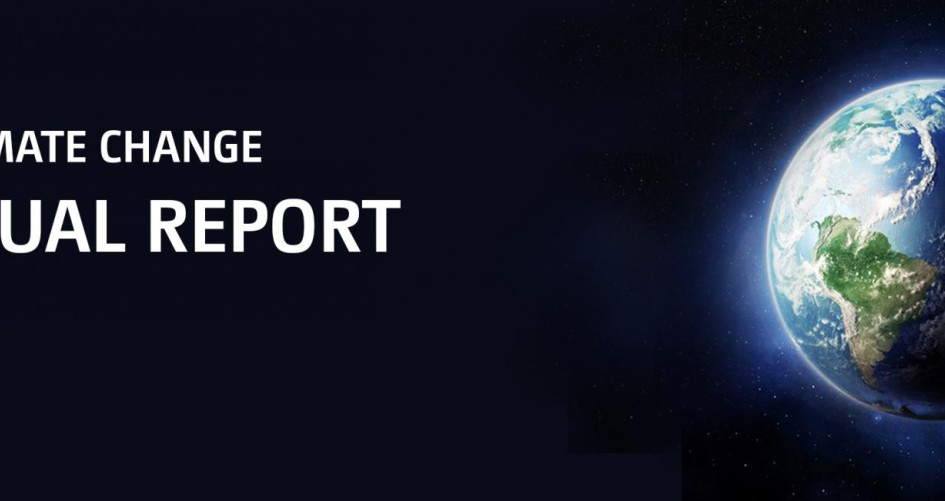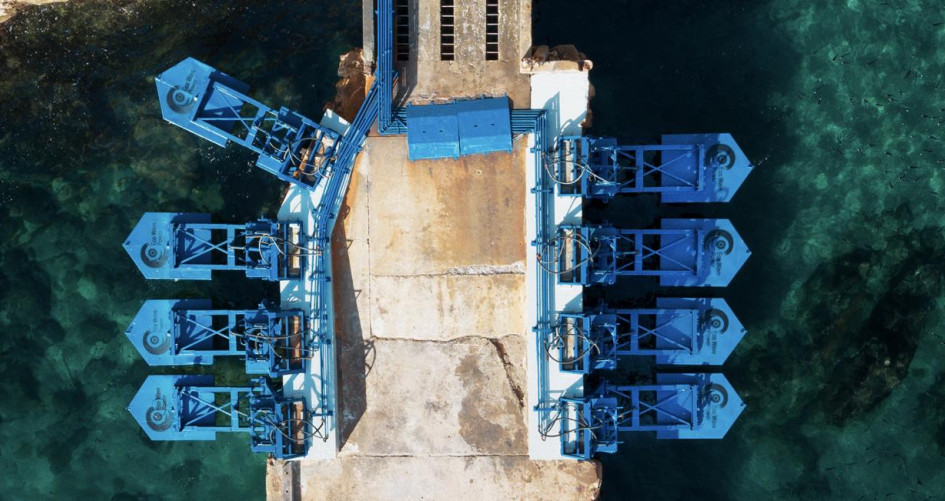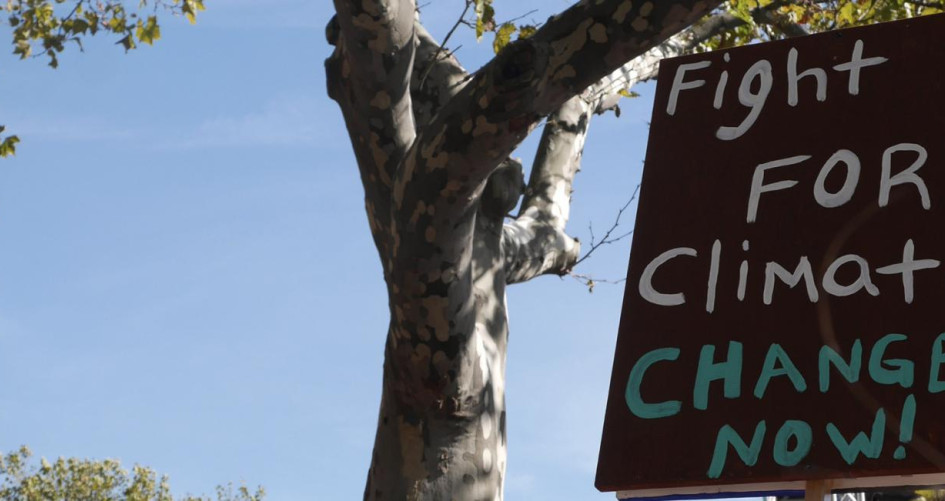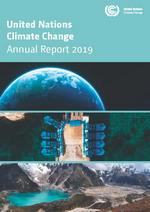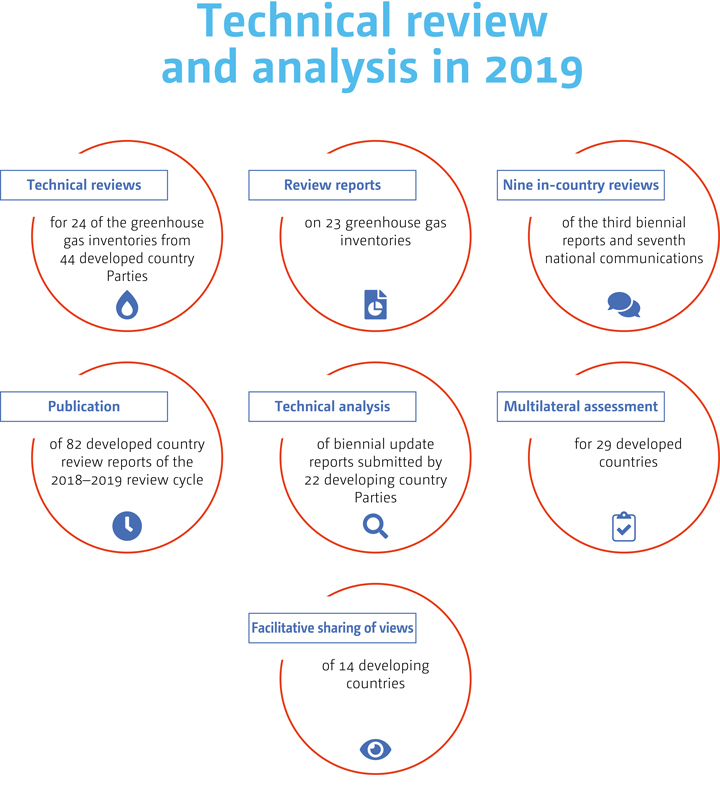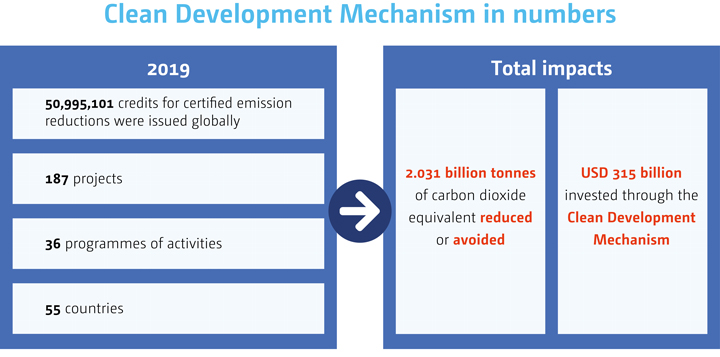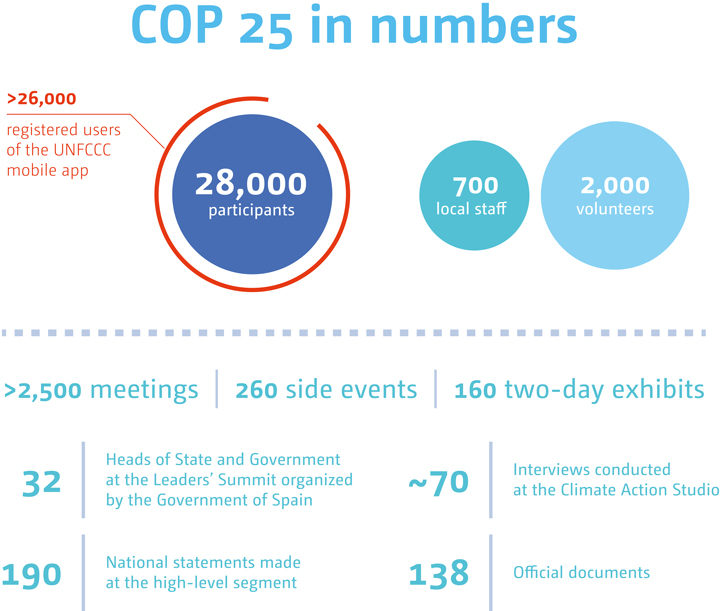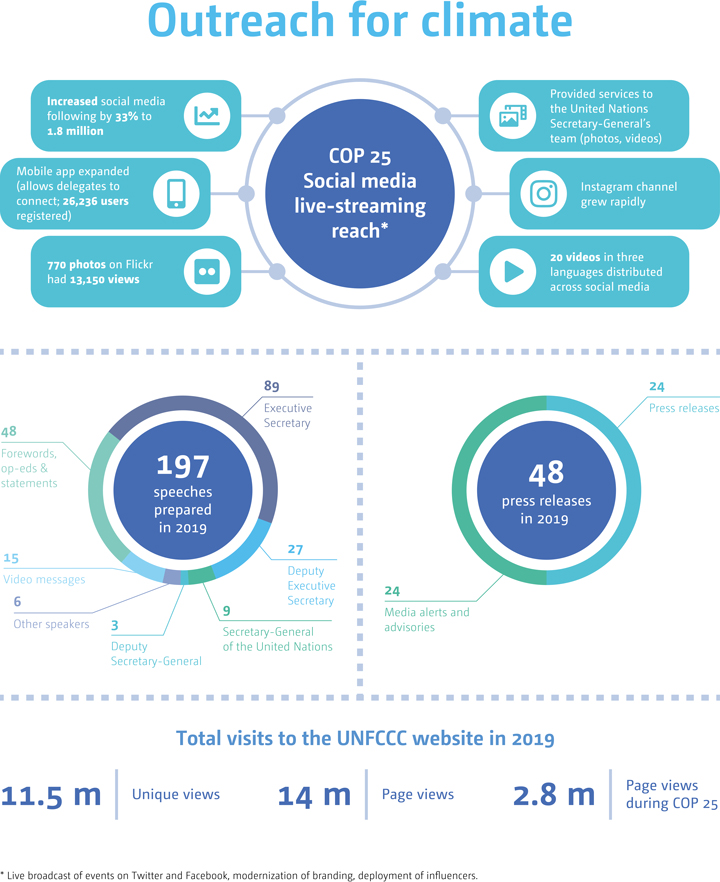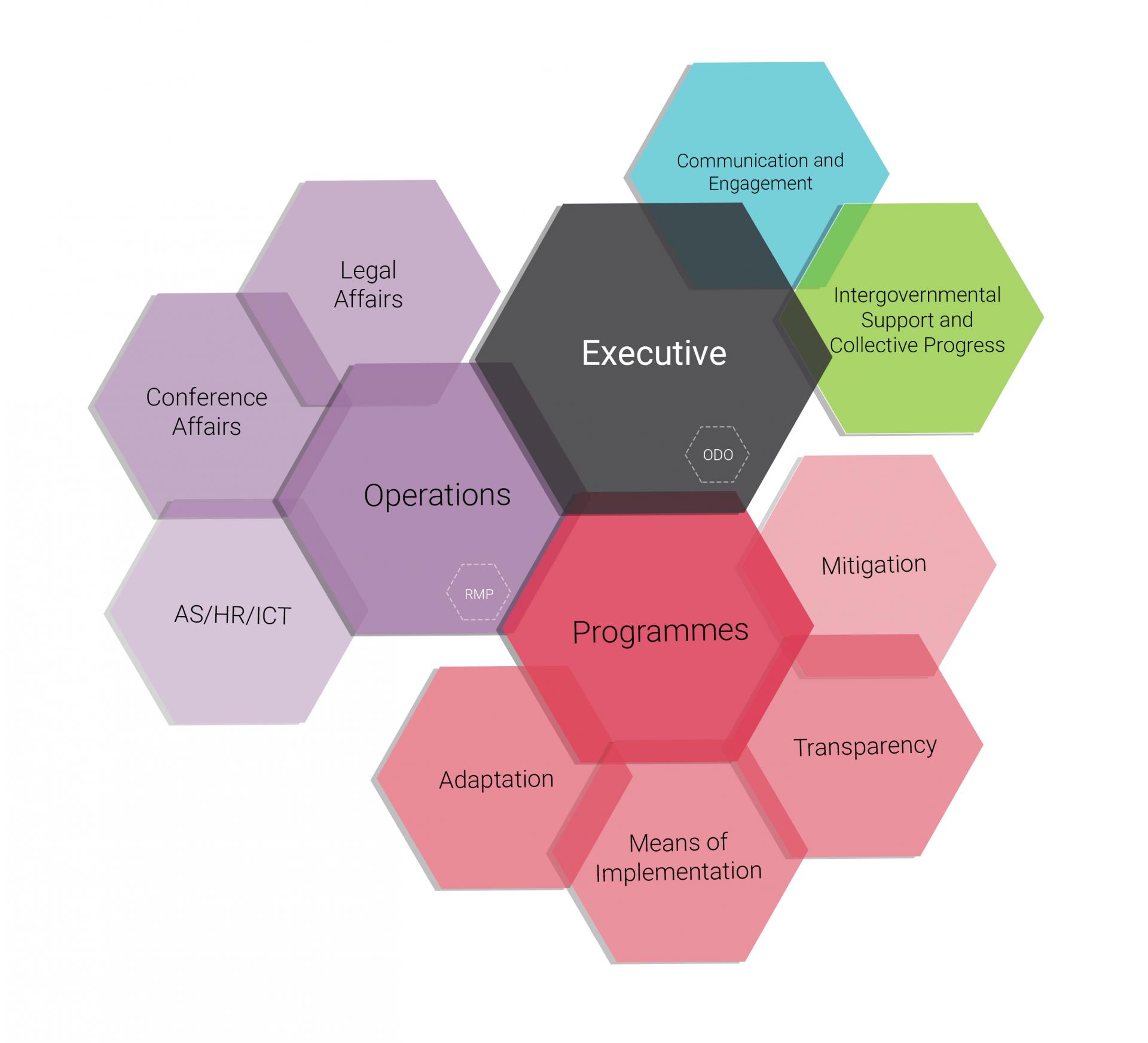In a typical year, the UNFCCC, through its constituted bodies, mechanisms and work programmes, strengthens mitigation and adaptation action and mobilizes support. In parallel, countries conduct negotiations to refine the international rules for climate action. The year’s work culminates in the COP, where Parties adopt decisions and guide further work. The global climate effort also moves forward at major conferences connected to work under the UNFCCC thanks to the scientific community and the community of global climate stakeholders. This section outlines how the secretariat’s programmes of work advanced and intersected to move us towards our common goals and describes the efforts by the secretariat in 2019 to streamline its operations and to better prepare for the challenges ahead.
Greenhouse gas emissions and transparency
Never have we needed to step up action to reduce greenhouse gas emissions as much as today. Guided by the need for greater global collaboration and transparency in combating climate change, the secretariat supports all Parties in their efforts to monitor and assess emission levels, reduce emissions and design ambitious targets for keeping the temperature rise below 1.5°C.
The secretariat coordinated technical reviews and analyses of national reports, including on REDD+, and trained reviewers, experts and Parties’ representatives in meeting national measurement, reporting and verification requirements. Greenhouse gas data and information on mitigation actions of Parties were synthesized in the report Climate action and support trends, released at the Climate Action Summit.
Adaptation
Greater efforts are required to adapt to the impacts of climate change and to protect people and the planet. The UNFCCC interacts with governments and partners in finding ways to increase developing countries’ capacity to adapt.
This year in adaptation was marked by the secretariat’s provision of support to countries for developing their national adaptation plans – in particular through the new Open NAP initiative – the work of the Adaptation Committee on climate finance, and the enhancement of partnerships under the Nairobi Work Programme. It also assisted the Least Developed Countries Expert Group and the Adaptation Committee with meetings and private sector engagement, including financing for adaptation action. The Adaptation Committee published its flagship report 25 Years of Adaptation under the UNFCCC.
Climate finance
Ensuring quick access to adequate finance that supports countries in tackling climate change is essential. Economists have warned that inaction will be far costlier than action in the long run. The secretariat supported negotiations on a wide range of climate finance topics throughout 2019 and continued to assist developing countries in assessing the priority of their adaptation, mitigation, capacity-building and financial needs. The Needs-based Finance project was launched to help countries implement priority actions. In addition, the secretariat assisted the Standing Committee on Finance with its biennial assessment and overview of climate finance flows and the 2019 Standing Committee on Finance Forum, which focuses on climate finance and sustainable cities.
Technology
Innovation in technologies that can be applied to improve climate resilience and reduce greenhouse gas emissions is key to achieving the purpose and goals of the Paris Agreement. Access to these technologies, in terms of both transfer and finance, is also key. In 2019, the secretariat continued to work with the Technology Executive Committee on implementing the technology framework, a new 4-year workplan, identifying policy options, practices and technologies with high mitigation potential through the climate technology project database and on producing recommendations for ways to move forward with mitigation.
Capacity-building
The UNFCCC capacity-building efforts are at the heart of its work on adaptation, mitigation, technology and climate finance. In 2019, the secretariat focused on improving its capacity-building activities through better coordination, systemic planning and continuous evaluation. At COP 25, the secretariat held the Second Capacity-building Hub of the Paris Committee on Capacity-building (PCCB) and established the PCCB Network.
Carbon markets
The Clean Development Mechanism enables governments, organizations, businesses and individuals to buy carbon credits from projects that reduce carbon dioxide emissions, thus lowering their carbon footprint. Carbon markets enable both the financing of clean development and reductions in emissions while implementing new solutions and technologies continues to pave the way for a full transition to a net zero carbon world.
With support from the secretariat, the clean development mechanism issued 50,995,101 certified emission reduction credits to 187 projects and 36 programmes in 55 countries in 2019. The secretariat organized capacity-building events and supported countries with carbon pricing.
